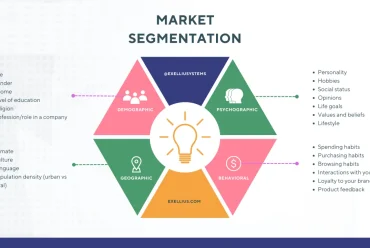Why Businesses Must Embrace Automation Now
Introduction
In today’s fast-paced digital landscape, the mantra for business survival is to adapt or perish. Right now, the key to adaptation lies in embracing automation. But why is automation so crucial for businesses? Let’s delve into the intricacies and unveil why businesses must embrace automation now.
The Benefits of Embracing Automation:
- Enhanced Efficiency: Automation streamlines processes, reducing the need for manual intervention and minimizing errors.
- Cost Savings: By automating repetitive tasks, businesses can significantly cut down on operational costs, leading to improved bottom lines.
- Scalability: Automation facilitates scalability, allowing businesses to handle increasing workloads without proportionately increasing resources.
- Improved Accuracy: Automated systems are less prone to human error, ensuring consistent and accurate results.
- Enhanced Customer Experience: With automation, businesses can provide quicker response times and personalized services, thereby enhancing customer satisfaction and loyalty.
Why Businesses Must Embrace Automation Now:
- Staying Competitive: In today’s hyper-competitive market, businesses that fail to embrace automation risk falling behind their competitors who leverage automation for efficiency and innovation.
- Adaptation to Technological Advancements: With rapid technological advancements, automation has become more accessible and sophisticated. Businesses that fail to adopt automation risk being left behind in the digital evolution.
- Meeting Consumer Expectations: In an era where instant gratification is the norm, consumers expect swift and seamless service. Automation enables businesses to meet these expectations by delivering efficient and personalized experiences.
- Navigating Uncertain Times: The COVID-19 pandemic has highlighted the importance of resilience and agility in business operations. Automation allows businesses to adapt quickly to disruptions and navigate uncertain times with ease.
- Future-proofing Business Operations: By embracing automation now, businesses future-proof their operations against evolving market dynamics and emerging challenges.
FAQs (Frequently Asked Questions):
- What types of tasks can be automated in a business setting? Automation can be applied to various tasks, including data entry, customer support, inventory management, marketing campaigns, and more.
- Will automation lead to job loss? While automation may eliminate certain repetitive tasks, it also creates new opportunities for employees to focus on higher-value activities, leading to upskilling and job enrichment.
- Is automation only suitable for large corporations? No, automation can benefit businesses of all sizes. There are automation solutions tailored to the needs and budgets of small and medium-sized enterprises (SMEs).
- How can businesses ensure a smooth transition to automation? To ensure a smooth transition, businesses should conduct thorough research, invest in user-friendly automation tools, provide adequate training to employees, and gradually implement automation in phases.
- What ROI (Return on Investment) can businesses expect from automation? The ROI from automation varies depending on factors such as the type of automation implemented, the size of the business, and the industry. However, businesses can expect to see significant cost savings, improved productivity, and enhanced competitiveness over time.
Conclusion:
In conclusion, the imperative for businesses to embrace automation now cannot be overstated. From enhancing efficiency and reducing costs to staying competitive and future-proofing operations, the benefits of automation are undeniable. By leveraging automation technologies, businesses can not only survive but thrive in an increasingly digital world. So, why wait? The time to embrace automation is now.



